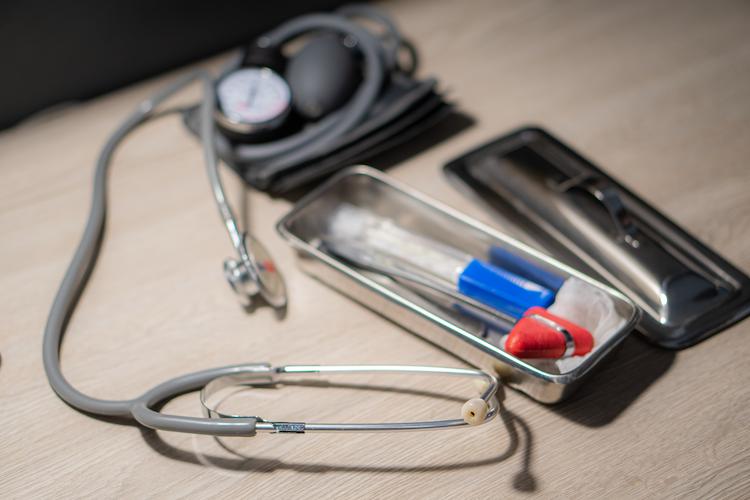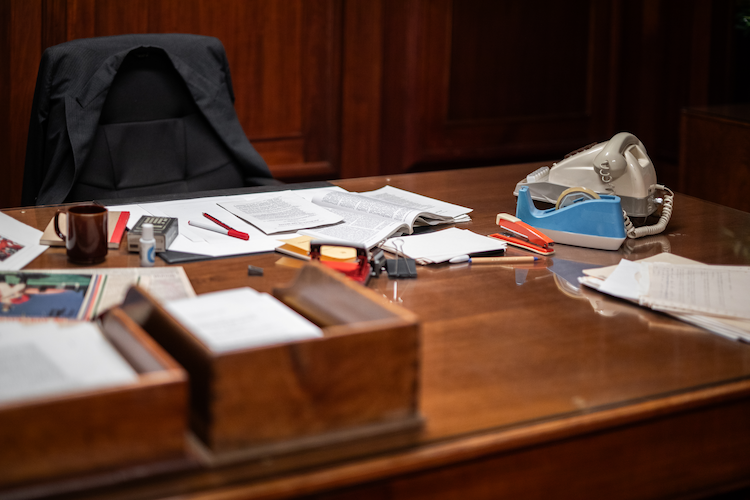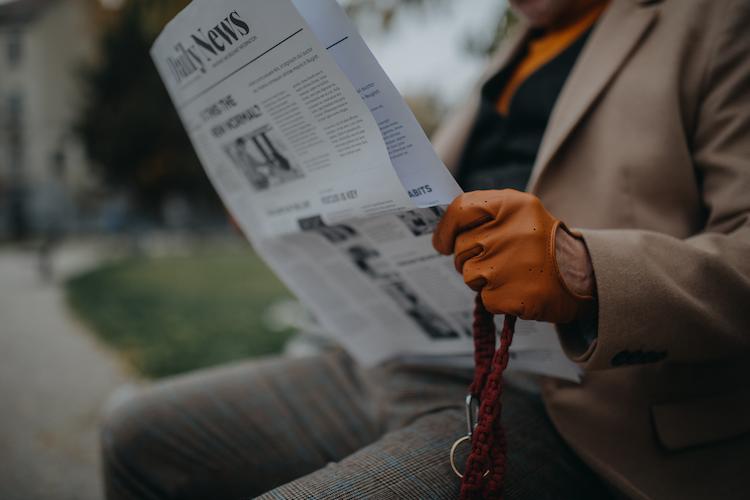
On November 15, 2024, the Supreme Court of New Jersey agreed to consider a closely watched public law case. The question before the justices in Borough of Englewood Cliffs v. Trautner is whether public entities are immune from sanctions under the state’s Frivolous Litigation Statute.
Facts of the Case
The Borough of Englewood Cliffs retained Thomas J. Trautner and Chiesa Shahinian & Giantomasi PC, (collectively CSG), Albert Wunsch III, Jeffrey Surenian and Jeffrey Surenian and Associates, LLC, (collectively Surenian) to represent it in affordable housing litigation. After judgment was entered for developer 800 Sylvan Avenue, LLC. (Sylvan), a settlement was reached between the Borough and Sylvan. Thereafter, political control of the Borough Council majority changed hands, and the newly constituted Council sued CSG, Wunsch, and Surenian, alleging professional malpractice, breach of contract, unjust enrichment, civil conspiracy, and aiding and abetting arising from their representation of the Borough in the litigation.
The Borough also sued Sylvan, alleging claims of conspiracy and aiding and abetting.
The trial court granted defendants’ Rule 4:6-2(e) motions to dismiss the Borough’s complaint with prejudice. The trial court subsequently granted defendants’ motion for sanctions, ordering the Borough to pay their attorney’s fees and costs for filing a frivolous lawsuit. The Borough appealed, arguing the sanction applications were procedurally deficient; as a public entity, it is immune from paying sanctions under the FLS; and the trial court abused its discretion in finding the Borough’s lawsuit was frivolous.
Appellate Division’s Decision
The Appellate Division affirmed. It held that a public entity is not immune from sanctions for filing a frivolous lawsuit under the FLS.
In reaching its decision, the appeals court acknowledged that whether a state and its agencies and political subdivisions are immune from the FLS is an unsettled question of law. “The only published cases are two divergent Chancery Division rulings issued almost four years apart, the most recent being some twenty-seven years ago,” Judge Thomas W. Sumners Jr. wrote. “The Chancery court held In the Matter of K.L.F. that N.J.S.A. 2A:15-59.1 applies to governmental bodies. Almost four years later, another Chancery court reached a contrary result in Div. of Youth & Fam. Servs. v. P.M.”
Nonetheless, the Appellate Division ultimately determined there is no immunity.
“K.L.F. and P.M. both express sound reasoning in reaching their respective rulings, making our decision a close call,” Judge Sumners wrote. “We, however, conclude, as did K.L.F. and the trial court, that a public entity is not immune from the sanctions that can be imposed under the FLS.”
Issues Before the NJ Supreme Court
The New Jersey Supreme Court granted certification. The justices agreed to consider the following question: “Is a municipality subject to sanctions for filing a frivolous lawsuit under the Frivolous Litigation Statute, N.J.S.A. 2A:15-59.1?” Oral arguments have not yet been scheduled. Please check back for updates.

The New Jersey Supreme Court is considering two measures aimed to ensure that the state’s attorneys are sufficiently tech-savvy. According to the Court, the new requirements are intended to “strengthen awareness and improve practices of attorneys relative to cybersecurity, artificial intelligence (AI), and other emerging technologies and the attendant risks posed by those technologies.”
The New Jersey Supreme Court’s proposals would specifically require New Jersey licensed attorneys to earn CLE credits in technology-related legal subjects; and add a comment to Rule of Professional Conduct (RPC) 1.1 (“Competence”) regarding an attorney’s responsibility, as part of competence, to keep abreast of the benefits and risks associated with relevant technology.
Proposal to Add a CLE Requirement in Technology-Related Subjects
The proposal would maintain the existing total number of CLE credits (and the current number of ethics credits) while requiring that at least one of the five ethics credits be in technology-related legal subjects, as follows:
Within each two-year CLE reporting cycle, New Jersey attorneys should be required to earn at least one CLE credit in technology- related legal subjects out of the five required ethics credits, including but not limited to artificial intelligence, cybersecurity, and emerging technologies.
The additional CLE requirement was first recommended by the New Jersey State Bar Association Task Force on AI and the Law. The Supreme Court’s own Committee on AI and the Law then endorsed the additional CLE requirement, without increasing the overall number of required credits. According to the New Jersey Supreme Court, this approach has been taken by other jurisdictions and would provide flexibility to address new technologies as they arise in the future.
Adding a Comment to the RPCs on Maintaining Technological Competence
The second proposal would add an official comment to RPC 1.1 (“Competence”) regarding maintaining technological competence. According to the New Jersey Supreme Court, since it published its Preliminary Guidelines on the Use of Artificial Intelligence by New Jersey attorneys in January, additional questions have been raised regarding the scope of responsibility of attorneys regarding technology, cybersecurity, AI, and other issues.
The new official comment would align with a similar comment to the ABA Model RPCs, as follows:
Proposed New Official Comment to RPC 1.1 (“Competence”)
To maintain competence, a lawyer should keep abreast of changes in the law and its practice, including the benefits and risks associated with relevant technology, engage in continuing study and education, and comply with all continuing legal education requirements to which the lawyer is subject.
What’s Next?
The New Jersey Supreme Court is now accepting comments on the proposals. Comments must be submitted in writing by December 20, 2024to:
Hon. Glenn A. Grant, J.A.D.
Acting Administrative Director of the Courts
Comments on Cybersecurity/Technology Proposals
Hughes Justice Complex, P.O. Box. 037
Trenton, NJ 08625-0037
Please check back for updates.

The New Jersey Supreme Court recently heard oral arguments in Wiggins v. Hackensack Meridian Health, which involves whether plaintiffs must serve an affidavit of merit (AOM) from a physician board certified in each of defendant doctor’s specialties. The Appellate Division previously held that the New Jersey Medical Care Access and Responsibility and Patients First Act (Act) requires plaintiffs to serve an AOM from a physician board certified in both specialties if defendant physician is board certified in two specialties, and the treatment claimed to be negligent involves both specialties.
Facts of the Case
Under N.J.S.A. 2A:53A-26 to -29 (the AOM statute), a plaintiff in a medical malpractice action must “provide each defendant with an affidavit of an appropriate licensed person that there exists a reasonable probability that the care, skill or knowledge exercised or exhibited in the treatment, practice or work that is the subject of the complaint, fell outside acceptable professional or occupational standards or treatment practices.”
In Wiggins, April Carden was treated for a blood clot at defendant Hackensack Meridien Health d/b/a JFK University Medical Center (JFK) in August 2020. She was discharged on September 3, 2020. Defendant Alok Goyal, M.D., prescribed allopurinol which Carden took from September 4 to 8. On September 9, Carden was admitted to JFK and treated for Stevens-Johnson Syndrome. She died on September 29, 2020, from cardiopulmonary arrest attributed to “multiple organ failure, bacteremia, and Stevens[-]Johnson Syndrome.” Plaintiffs allege Carden’s death was attributed to the usage of allopurinol.
Plaintiffs, as administratrices of Carden’s estate, filed a complaint against the defendants alleging Dr. Goyal breached the applicable standard of care and was negligent in his treatment of Carden, causing her injuries and death. The complaint cited Goyal’s certification in both internal medicine and gastroenterology.
The plaintiffs served an AOM by Stella Jones Fitzgibbons, M.D., FACP, FHM, licensed in Texas,
who was board-certified in internal medicine and practiced clinical internal medicine. The defense objected to the AOM on the basis that it did not cover Goyal’s second specialty, gastroenterology. In response, the plaintiffs argued that one AOM is enough, relying largely on Buck v. Henry, 207 N.J. 377 (2011). “A physician may practice in more than one specialty, and the treatment involved may fall within that physician’s multiple specialty areas,” the Court wrote in Buck. “In that case, an [AOM] from a physician specializing in either area will suffice.”
Appellate Division’s Decision
The trial court agreed that an AOM from a physician specializing in just one of a defendant doctor’s two specialties is sufficient. However, the Appellate Division reversed. It held concluded that plaintiffs must serve an AOM from a physician board certified in each of defendant doctor’s specialties.
“Because the facts presented here are distinguishable from Buck and the discrete ruling in Buck was not specific to this issue, and in considering the purpose of the Act, we conclude plaintiffs must serve an AOM from a physician board certified in each of defendant doctor’s specialties,” the appeals court explained. “We are guided by the kind-for-kind, credential equivalency requirement articulated in N.J.S.A. 2A:53A-41(a) and the legislative purpose of the Act.”
Issues Before the NJ Supreme Court
The New Jersey Supreme Court granted certification on July 18, 2024. The justices agreed to consider the following question: “In this medical malpractice matter in which the treating doctor was board certified in internal medicine and gastroenterology, was plaintiffs’ affidavit of merit from a doctor board certified in internal medicine sufficient?” Oral arguments were held on November 4, 2024.

The New Jersey Supreme Court recently heard oral arguments regarding a novel criminal law issues. The question before the justices in two consolidated cases, State of New Jersey v. Fuquan K. Knight and State of New Jersey v. Shaquan K. Knight, is whether it is permissible to replay video recordings multiple times in slow motion, and with intermittent pauses, at a jury’s request?
Facts of the Case
Fuquan K. Knight and Shaquan K. Knight were found guilty by a jury of armed robbery and other offenses. The State’s proofs showed that defendants, along with their father Kyler Knight, robbed the victim behind a deli, threatening him with a knife and at gunpoint. The victim identified defendants to the police as two of the three robbers, confirming his identification of them at a pretrial hearing pursuant to United States v. Wade, 388 U.S. 218 (1967).
The victim died of unrelated causes before trial, but his earlier testimony at the Wade hearing and his post-robbery 9-1-1 call to the police were presented to the jury over defendants’ objection. Other evidence substantiated defendants’ guilt, including, among other things, surveillance videos that recorded events inside and outside the deli, as well as incriminating items seized by police from their residence. Defendants did not call witnesses or testify at trial, but disputed the victim’s identification and their involvement in the robbery.
Defendants raised substantially overlapping issues on appeal, with both arguing that the trial court erred by allowing the jury to observe multiple times, in slow motion and with pauses, an approximately six-second segment of a surveillance video. That video, which was filmed through a glass door in the rear of the deli, shows the victim quickly being escorted by the three culprits outside the building. One culprit appears to be pointing a firearm at the victim, and another appears to be pushing defendant forward. The State presented the video as part of its case-in-chief without objection, and then played it again several times in closing argument without objection, once in slow motion.
During both days of their deliberations, the jurors requested the video to be replayed several more times, in slow motion and at other varying speeds and with intermittent pauses. The trial judge permitted those jury playbacks under her supervision in the courtroom, over defendants’ objection. Defendants contend they were unduly prejudiced by these video playbacks, citing research indicating that slow-motion presentations can increase a viewer’s perception or inferences of intentional conduct.
Appellate Division’s Decision
The Appellate Division found that there was no reversible error concerning the video playbacks. In reaching its decision, the Appellate Division acknowledged that there are no published New Jersey opinions on the issue.
Relying on decisions from outside the state, the Appellate Division held that—subject to offsetting concerns of undue prejudice—surveillance video footage may be presented to jurors in slow motion or at other varying speeds, or with intermittent pauses, if the trial court in its discretion “reasonably finds those modes of presentation would assist the jurors’ understanding of the pertinent events and help them resolve disputed factual issues.” The appeals court further held that, subject to offsetting concerns of undue prejudice, trial courts in their discretion may grant a jury’s requests during deliberations to replay the videos in such modes one or more times, provided that the playbacks occur in open court under the judge’s supervision and in the presence of counsel.
The Appellate Division also offered several non-exclusive factors to guide the court when considering whether to allow videos to be shown in varying speeds or with intermittent pauses during the trial and summations, and on a jury’s request during deliberations. Judge Jack M. Sabatino wrote:
In exercising their discretion in admitting into evidence or allowing the replay of surveillance video recordings, trial courts should consider, among other things, (a) whether the video has a soundtrack that contains recorded statements of the filmed persons; (b) whether the video is difficult to discern when played only at normal speed; (c) whether the video can assist in resolving disputed issues of identification; (d) whether the video bears upon disputed issues of intentionality; (e) whether the video contains content that is particularly disturbing or inflammatory to watch repeatedly in slow motion.
The appeals court further recommended that the Model Criminal Jury Charge Committee consider crafting an instruction to guide jurors when surveillance videos are presented in such modes. “Such a model charge might also usefully draw to the jurors’ attention the possibility that viewing such video evidence in slow motion might subconsciously increase their perceptions of an actor’s intentionality,” Judge Sabatino explained. “The content and contours of charge, if one is adopted, are best developed by the committee, with the benefit of additional study and the consideration of practices in other jurisdictions.”
Issues Before the NJ Supreme Court
The New Jersey Supreme Court granted certification on May 10, 2024. It agreed to consider the following question: “Was it permissible to replay video recordings multiple times in slow motion, and with intermittent pauses, at the jury’s request? “ The justices heard oral arguments on October 7, 2024. Please check back for updates.

The New Jersey Supreme Court recently heard oral arguments in two cases addressing the scientific reliability of expert testimony that shaking alone can cause the injuries associated with shaken baby syndrome (SBS), also known as abusive head trauma (AHT).
Facts of the Case
The State sought to admit expert testimony to prove aggravated assault and child endangerment charges against defendants Darryl Nieves and Michael Cifelli, fathers of infant sons who exhibited associated symptoms while in their respective fathers’ care. Following a hearing conducted pursuant to Frye v. United States, 293 F. 1013 (D.C. Cir. 1923), Judge Pedro J. Jimenez, Jr. concluded that expert testimony of shaking-only SBS/AHT was not scientifically reliable, barred admission of the evidence at Nieves’s trial, and dismissed the indictment against Nieves. Over the State’s objection, Judge Benjamin S. Bucca, Jr. adopted the decision barring the testimony, ruling that the parties had previously agreed to be bound by Judge Jimenez’s decision in the Nieves matter in the prosecution of Cifelli.
The State sought leave to appeal the orders relating to both defendants, and the Appellate division consolidated the appeals. The State challenged Judge Jimenez’s decision dismissing Nieves’s indictment based on the purported inadmissible evidence, arguing it established SBS/AHT’s general acceptance within the medical community through expert testimony and supporting authoritative scientific studies.
Appellate Division’s Decision
The Appellate Division affirmed. It agreed with the trial court that the State had not “demonstrated general acceptance of the SBS/AHT hypothesis to justify its admission in a criminal trial.”
According to the Court, the State failed to establish SBS/AHT’s general acceptance within the medical community through expert testimony, supporting authoritative scientific studies, and judicial opinions. “The very basis of the theory has never been proven,” Judge Greta Gooden Brown wrote in the court’s opinion. “The State has not demonstrated general acceptance of the SBS/AHT hypothesis to justify its admission in a criminal trial.”
In reaching its decision, the New Jersey Supreme Court determined that when the underlying theory integrates multiple scientific disciplines, the proponent must establish cross-disciplinary validation to establish reliability.
“The evidence supports the finding that there is a real dispute in the larger medical and scientific community about the validity of shaking only SBS/AHT theory, despite its seeming acceptance in the pediatric medical community,” Judge Gooden Brown wrote.
“Where the underlying theory integrates multiple scientific disciplines, as here, the proponent must establish cross- disciplinary validation to establish reliability. The State failed to do that here.”
According to the Appellate Division, the evidence revealed that there is no general acceptance from the biomechanical community, and biomechanical testing has never proven the premise of SBS/AHT. “Because biomechanical theory is the foundation of the SBS/AHT hypothesis, the lack of biomechanical support renders the theory scientifically unreliable, notwithstanding its support in the pediatric community,” Judge Gooden Brown wrote. Based on its holding, the Appellate Division affirmed the dismissals of the indictments in both cases.
Issues Before the NJ Supreme Court
The New Jersey Supreme Court granted certification on March 28, 2024. The justices agreed to consider the following question: “Is the diagnosis of abusive head trauma, commonly known as shaken baby syndrome, scientifically reliable?”
The Court held oral arguments on October 21, 2024. David M. Liston, the appellate section chief for the Middlesex County Prosecutor’s Office, argued that the state satisfied its burden of showing general acceptance of abusive head trauma in the broad scientific community and placed too much emphasis on biomechanical engineers. “Yet despite the demonstrated consensus among professionals in numerous medical specialties, the Appellate Division held that a lack of consensus in one group of scientists, biomechanical engineers, was enough to overcome the broad consensus among medical professionals and render testimony on abusive head trauma unreliable,” Liston argued.
On the other side, Cody T. Mason of the New Jersey Office of the Public Defender emphasized that there is a distinction between abusive head trauma and shaken baby syndrome. “This case is about the scientific reliability of the shaken baby syndrome or abusive head trauma without signs of impact,” Mason said. “That is the scientific theory the state has relied upon in this case to allege that Mr. Nieves violently shook his 11-month-old son.” He added: “The position of the biomechanical community and the biomechanical experts in our case is not that shaking cannot cause these injuries, it is that they have repeatedly tested this other hypothesis … and it has repeatedly failed to prove it.” We will continue to follow this case. Please check back for updates.

The Supreme Court of New Jersey recently heard oral arguments in D.T. v. Archdiocese of Philadelphia (088966), which will decide whether the Archdiocese of Philadelphia must face child sexual abuse claims in New Jersey. The plaintiff brought the suit under the Child Victims Act, which provides a two-year revival window for victims to file otherwise time-barred claims for sexual abuses committed against them while minors. Pennsylvania does not have a similar law.
Facts of D.T. v. Archdiocese of Philadelphia
Plaintiff D.T. alleges that Michael McCarthy, a former Catholic priest, sexually abused him in New Jersey in 1971. At that time, plaintiff was fourteen years old, and McCarthy was serving as a priest and teacher in the Archdiocese of Philadelphia (the Archdiocese). As detailed in court documents, McCarthy invited plaintiff to go with him to a home McCarthy used in Margate, New Jersey. The Plaintiff’s mother gave permission, and McCarthy and the Plaintiff then drove to the Margate home. When they arrived, the Plaintiff alleges that McCarthy showed him pornography, encouraged him to drink alcohol, and sexually assaulted him.
In May 2020, the Plaintiff filed suit against McCarthy and the Archdiocese in New Jersey. Plaintiff alleged that defendants negligently provided pastoral services to him when McCarthy sexually abused plaintiff in New Jersey. Plaintiff also contended that the Archdiocese was vicariously liable for McCarthy’s tortious acts and that the Archdiocese was negligent in hiring and supervising McCarthy.
After conducting discovery regarding the Archdiocese’s ownership of property in New Jersey, the trial court granted its motion to dismiss the Plaintiff’s claims against it for lack of personal jurisdiction. The trial court found that the Archdiocese’s past ownership of property in New Jersey did not constitute purposeful availment of any benefit from New Jersey related to McCarthy’s alleged sexual abuse of plaintiff. The trial court also found that the Archdiocese had not purposefully availed itself of any benefit in New Jersey related to plaintiff’s allegations because those allegations “only involve[d] the unilateral act[s] of [McCarthy]” and did not involve deliberate conduct by the Archdiocese.
Appellate Division’s Decision in D.T. v. Archdiocese of Philadelphia
The Appellate Division affirmed. “Because there are no facts establishing that the Archdiocese purposefully availed itself of any benefits in or from New Jersey related to McCarthy’s alleged abuse of plaintiff, we affirm,” the appeals court wrote.
The Appellate Division agreed that neither the Archdiocese’s former ownership of properties in New Jersey nor its supervision over McCarthy as one of its priests established specific jurisdiction over the Archdiocese in New Jersey related to McCarthy’s alleged sexual abuse of the Plaintiff in New Jersey. It further found the decision was consistent with rulings by other courts that have considered whether Catholic dioceses, including the Archdiocese, are subject to personal jurisdiction because of alleged sexual abuses committed by priests.
Issues Before the NJ Supreme Court in D.T. v. Archdiocese of Philadelphia
The New Jersey Supreme Court granted certification on April 8, 2024. The justices agreed to consider the following question: “Under the circumstances presented, is the Archdiocese of Philadelphia subject to personal jurisdiction in New Jersey?”
The Court held oral arguments on October 7, 2024. It was the first oral argument hearing for newly sworn in Associate Justice John Jay Hoffman.

The New Jersey Supreme Court has agreed to consider a constitutional challenge to Daniel’s Law, which amended the state’s Open Public Records Act (OPRA) to prohibit the disclosure of certain personal information of active, formerly active, and retired judicial officers, prosecutors, and law enforcement officers, and their family members. The issue in Kratovil v. City of New Brunswick is whether the law is constitutional as applied to journalist Charles Kratovil.
Facts of the Case
Plaintiff Charles Kratovil (Kratovil or Plaintiff), who writes for and edits an online publication, brought an as-applied constitutional challenge to Daniel’s Law after Defendants the City of New Brunswick (the City) and Anthony Caputo, the former Director of the City’s Police Department, notified the Plaintiff that he should not re-publish Caputo’s home address. As set forth in court documents, Kratovil, who writes for and edits New Brunswick Today, discovered that Caputo, who was also a Commissioner of the City’s Parking Authority, was not attending municipal meetings in person.
After Kratovil came to believe that Caputo was living in Cape May, he filed an OPRA request with the Cape May County Board of Elections (the Cape May Board), requesting Caputo’s voter profile. That voter profile included Caputo’s home address. On May 3, 2023, Katovil attended another City Council meeting where he discussed Caputo’s change of residence, that Caputo’s residence in Cape May was approximately a two-hour drive from the City, and that Caputo was serving on the City’s Parking Authority even though he was a non-resident. During that discussion, Kratovil stated the street name in Cape May where Caputo was registered to vote. He also provided City Council members with copies of Caputo’s voter profile, which included Caputo’s complete home address.
On May 15, 2023, Kratovil received a letter notifying him that Caputo was invoking Daniel’s Law to prevent re-publication of his home address. On July 12, 2023, he filed a verified complaint and order to show cause seeking temporary and permanent restraints. Kratovil stated that he planned to publish an article about Caputo living in Cape May, which would include Caputo’s home address. So, he sought a declaration that Daniel’s Law was unconstitutional as applied to his intended publication. He also sought preliminary and permanent injunctions prohibiting defendants from seeking to impose civil or criminal sanctions on him if he published Caputo’s home address.
The trial court denied the injunction and dismissed the compliant. On appeal, Kratovil argued that Daniel’s Law is unconstitutional as applied to his intention to publish Caputo’s home address because he obtained that address lawfully and it is a matter of public concern.
Appellate Division’s Decision
The Appellate Division affirmed. It held that Daniel’s Law as applied to the Plaintiff does not violate his First Amendment rights of free speech and free press.
In reaching its decision, the appeals court acknowledged that it was a matter of public concern that Caputo lived in Cape May while serving as the City’s Director of Police and a Commissioner of the City’s Parking Authority. Additionally, Kratovil always had the right to publish that Caputo lived in Cape May, which was a substantial distance from the City, without being subject to Daniel’s Law sanctions.
However, the Appellate Division also agreed with the trial court that Kratovil was not entitled to injunctive relief. “The trial court’s conclusion that Caputo’s exact street address is not a matter of public concern is supported by the record and consistent with the law,” the court wrote. “In that regard, we also agree with the trial court that protecting public officials from violent attacks and harassment is a compelling State interest of the highest order.”
Issues Before the NJ Supreme Court
The New Jersey Supreme Court granted certification on September 20, 2024. The justices have agreed to consider the following question:
Is Daniel’s Law, N.J.S.A. 56:8-166.1 and N.J.S.A. 2C:20-31.1, which prohibits disclosing the home addresses of certain public officials, including judges, prosecutors, and law enforcement personnel, unconstitutional as applied to plaintiff?
Oral arguments have not yet been scheduled. Please check back for updates.

In Christopher Maia v. IEW Construction Group (A-3-23/088010) (May 15, 2024), the Supreme Court of New Jersey clarified the statute of limitations under the Wage Theft Act, holding that the 2019 law does not apply retroactively.
Facts of Maia v. IEW Construction Group
Plaintiffs Christopher Maia and Sean Howarth were employed as laborers for defendant IEW Construction Group, which required them to perform “pre-shift” and “post-shift” work. Maia joined IEW in April 2019. From early May 2019, he was not paid for his “pre-shift” and “post-shift” work. Howarth began working for IEW in April 2020. He was never paid for “pre-shift” and “post-shift” responsibilities. Both Maia and Howarth were laid off in November 2021.
In April 2022, they filed a class action complaint alleging that IEW violated the Wage Payment Law (WPL) and the Wage and Hour Law (WHL). In 2019, L. 2019, c. 212 (Chapter 212) amended the WPL and the WHL by providing additional remedies and by extending the WHL’s statute of limitations from two to six years.
The trial judge held that Chapter 212 does not apply retroactively and thus dismissed plaintiffs’ claims for conduct that arose prior to Chapter 212’s effective date of August 6, 2019. The Appellate Division reversed, holding that held that plaintiffs were entitled to the remedies available under the WHL and WPL as of the date of their complaint because “[a]pplying the law in effect at the time a complaint is filed . . . is not applying a statute retroactively; it is applying a statute prospectively to cases filed after its effective date.”
NJ Supreme Court’s Decision in Maia v. IEW Construction Group
The New Jersey Supreme Court reversed. “We hold that the Legislature intended Chapter 212 to be prospective, not retroactive,” Justice Fasciale wrote. “Thus, Chapter 212 applies to conduct occurring on or after its effective date of August 6, 2019, but not to conduct occurring before then.”
The New Jersey Supreme Court first addressed the Appellate Division’s determination that applying Chapter 212 to conduct occurring prior to its effective date is not a retroactive application, but rather prospective application of a statute “to cases filed after its effective date.” In finding the appeals court erred, the Court emphasized that both federal law and state law determine whether a statute’s application is retroactive by focusing on any changes to the legal consequences created by a statute or amendment.
With regard to Chapter 212, the New Jersey Supreme Court found that by adding liquidated damages and a retaliation claim to both the WPL and WHL, attorneys’ fees to the WPL, and by extending the statute of limitations in the WHL, Chapter 212 allows plaintiffs to bring new claims with enhanced damages that were not previously available to plaintiffs at the time their injuries occurred, thereby changing the legal consequences of acts. “The changes are not merely procedural; rather, they affect the duties and liabilities involved,” Justice Fasciale wrote.
The New Jersey Supreme Court next turned to whether retroactive application of the statute’s effective date was appropriate, explaining that there are three circumstances that justify applying a statute retroactively: (1) when the Legislature explicitly or implicitly expresses an intent that a law be retroactive; (2) when an amendment is ameliorative or curative; or (3) when the parties’ expectations warrant retroactive application.
It concluded that none of the circumstances applied. In support, the Court cited that the Legislature expressly stated in Section 14 of Chapter 212 that the new provisions “shall take effect immediately,” a phrase that New Jersey Courts have repeatedly held to signal prospective application.
In light of its decision, the New Jersey Supreme Court reinstated the trial judge’s order partially dismissing plaintiffs’ complaint, and remanded for further proceedings.
In In the Matter of Brian Ambroise (A-10-23/088042) (Decided July 24, 2024), the Supreme Court of New Jersey ruled that the Civil Service Commission’s decision to impose a six-month suspension upon a correctional officer, who failed to report kissing an inmate and passed messages on her behalf ,was disproportionate to the serious and highly concerning offenses.
Facts of In the Matter of Brian Ambroise
Respondent Senior Correctional Police Officer Brian Ambroise has been employed by petitioner the Department of Corrections (DOC) since 2013. Ambroise spent his entire career at the Edna Mahan Correctional Facility for Women (EMCF), where he was a correctional officer with a previously unblemished record.
In December 2020, the DOC issued final disciplinary charges against Ambroise seeking his removal for conduct unbecoming a public employee and other sufficient cause. Additionally, the DOC charged Ambroise with violations of two DOC policies: conduct unbecoming a public employee and undue familiarity with inmates, parolees, their families, or friends. The policies permitted disciplinary sanctions up to and including removal.
The facts underlying those charges stem from information received by the EMCF’s Special Investigation Division in 2016 from J.O., an inmate who reported that she was having a sexual relationship with Ambroise. J.O. additionally alleged that she and Ambroise had a close personal relationship and that he would perform favors for her, such as bringing in contraband and passing a written message between her and another inmate at her request. Ambroise admitted — and never retracted — that he kissed J.O. and that he failed to report the kiss, despite knowing DOC’s mandatory reporting policy of unusual incidents.
At a hearing on the charges before an Administrative Law Judge (ALJ), Ambroise additionally confirmed that J.O. requested that he bring contraband into the prison, that he did not report the request, and that not reporting J.O.’s request violated the DOC’s mandatory reporting policy for unusual incidents. Moreover, Ambroise conceded that he delivered a personal message from J.O. to another inmate.
The ALJ modified the DOC’s penalty from removal to a twenty-day suspension, sustained one charge — Ambroise’s failure to report that J.O. kissed him — and dismissed the others.
The DOC appealed the ALJ’s decision to the Commission. The Commission affirmed the finding that Ambroise violated the DOC’s reporting policy by not reporting J.O.’s kiss. It reversed the ALJ’s dismissal of the undue familiarity charge, finding that Ambroise’s admission to passing a message between J.O. and another inmate “establishe[d] that he was unduly familiar.”
The Commission remarked that regardless of the message’s content or context, Ambroise’s simple act of facilitating the transfer was highly inappropriate and that at least two inmates knew Ambroise was willing to violate DOC policy on their behalf. The Commission accordingly determined that this act could have affected the safety and security of the facility. In fashioning the appropriate penalty for Ambroise, the Commission utilized the concept of progressive discipline and ordered Ambroise’s suspension to be modified to six months with back pay, benefits, and seniority.
The DOC appealed the Commission’s final administrative determination to the Appellate Division. The Appellate Division affirmed the judgment, finding that the Commission “considered the nature and circumstances of the charges” against Ambroise and reasonably determined that removal was not warranted in light of his previously unblemished employment record.
NJ Supreme Court’s Decision in In the Matter of Brian Ambroise
The New Jersey Supreme Court reversed. It held that that the Commission acted arbitrarily, capriciously, and unreasonably for failing to credit the Department of Corrections’ view that the sustained charges against the officer undermined prison security and touched directly at the heart of his ability to obey the protocols pertaining to his employment at a correctional facility.
In support of its decision, the New Jersey Supreme Court cited that progressive discipline is not a fixed and immutable rule to be followed without question because some disciplinary infractions are so serious that removal is appropriate notwithstanding a largely unblemished prior record. It further emphasized that the dismissal of an officer is especially warranted for those infractions that go to the heart of the officer’s ability to be trusted to function appropriately in his position.
“We agree with the DOC that there is no situation more severe and contrary to the public interest than when a correctional officer tarnishes the institution by knowingly compromising the safety and security of himself, his fellow officers, and the inmates,” Justice Michael Noriega wrote on behalf of the Court.
The New Jersey went on to conclude that the reduction of Ambroise’s penalty was arbitrary, capricious, and unreasonable. “Intimate contact between an inmate and a corrections officer whether initiated by the inmate or the officer can never be anything but unusual,” Justice Noriega wrote. “In this regard, Ambroise had no choice but to report that incident.”
The Court agreed with the DOC that the effect of Ambroise’s withholding of information about the incident, along with his admission that he passed a personal message to another inmate at J.O.’s request, directly implicates his ability to be trusted as a correctional officer, and it adversely affects prison security, discipline, and order.
“His affirmative obligation — indeed, his duty — was simply to report the incident. His failure to do so risks the safety and security of the inmates, his fellow officers, and the institution,” Noriega wrote. “It amounts, in short, to an offense warranting termination of the officer’s employment.”
The New Jersey Supreme Court remanded the matter to the Civil Service Commission “to redetermine the officer’s penalty in accordance” with its decision.

In In the Matter of Proposed Construction of Compressor Station (A-24-23/088744) (Decided August 6, 2024), the Supreme Court of New Jersey clarified a section of the Highlands Water Protection and Planning Act (Highlands Act) that exempts projects that qualify as “routine maintenance and operations, rehabilitation, preservation, reconstruction, repair, or upgrade of public utility lines, rights of way, or systems, by a public utility, provided that the activity is consistent with the goals and purposes of this act.” According to the Court, “routine” modifies only “maintenance and operations” and does not modify the remaining activities.
Facts of In the Matter of Proposed Construction of Compressor Station
Tennessee Gas (Tennessee) owns and operates an interstate natural gas transmission system. As part of a project known as the “East 300 Upgrade Project,” Tennessee proposed to install various compressor stations along its natural gas transmission system. Relevant here, Tennessee sought to construct a new compressor station and facility (Compressor Station 327) in West Milford Township, where Tennessee has an existing right-of-way on the site of a former quarry.
Because Compressor Station 327 is located within the Highlands Preservation Area, an area that is subject to stringent environmental standards, Tennessee applied to the Department of Environmental Protection (DEP) for a Highlands Applicability Determination (HAD). Before any major development occurs in the Highlands preservation area, an entity must seek either a HAD or Highlands Preservation Area Approval from the DEP.
The Highlands Act creates certain exemptions from the requirements of the Act, the regional master plan, and any permitting rules or regulations imposed by the DEP Tennessee’s HAD application requested an exemption from the Highlands Act on the ground that Compressor Station 327 qualified for Exemption 11. Tennessee also submitted a copy of the complete HAD application to the Highlands Water Protection and Planning Council (Highlands Council).
On October 16, 2020, the Highlands Council wrote to the DEP stating that it would not object to the issuance of a HAD under Exemption 11 for this project, noting that Tennessee’s “efforts to avoid, minimize and mitigate . . . resource impacts are sufficient to find that the project is consistent with the goals of the Highlands Act,” especially because Compressor Station 327 would fall within a “historically disturbed” former quarry site where “[c]ritical wildlife habitat areas are disconnected and non-functional.” The DEP issued the HAD in June 2021.
Food & Water Watch appealed the DEP’s HAD, arguing that Exemption 11 must be narrowly construed such that the word “routine” modifies the word “upgrade.” The Appellate Division agreed, vacating the HAD and remanding the matter to consider whether Compressor Station 327 qualifies as a “routine upgrade.”
NJ Supreme Court’s Decision in In the Matter of Proposed Construction of Compressor Station
The New Jersey Supreme Court reversed. It held that based on the plain language deliberately crafted by the Legislature, read in context with the law as a whole, “routine” modifies only “maintenance and operations” and does not modify the remaining activities.
“Based on the plain language deliberately crafted by the Legislature, read in context with the law as a whole, we conclude that ‘routine’ modifies only “maintenance and operations” and does not modify the remaining activities. We therefore reverse the judgment of the Appellate Division and remand the matter for further proceedings,” Justice Michael Noriega wrote on behalf of the Court.
In reaching its decision, the New Jersey Supreme Court explained that Exemption 11 contains three components. First, an activity must either be “routine maintenance and operations, rehabilitation, preservation, reconstruction, repair, or upgrade.” Second, that activity must be conducted by a public utility to its lines, rights of way, or system. Third, the activity must be consistent with the goals of the Highlands Act. The case before the Court centered on the first element — whether “routine” modifies “maintenance and operations” or whether it modifies the entire series of exempt activities, including “upgrade.”
The New Jersey Supreme Court ultimately determined that “routine” modifies only “maintenance and operations” and does not modify “upgrade.” In support, it cited the plain language of Exemption 11. The Court specifically noted that by their very nature, “maintenance and operations” are activities that would both inherently occur on a periodic or “routine” basis. Conversely, Exemption 11’s remaining activities all would occur on an as-needed basis after a triggering event, making them distinct from “routine maintenance and operations.”
The New Jersey Supreme Court went on to note that the first statutory requirement for Exemption 11 is met here, while the second requirement — that the action be performed “by a public utility” —is undisputed. With regard to the third requirement — “that the activity is consistent with the goals and purposes of [the Highlands A]ct,” the Court offered guidance for the lower court on remand.
As Justice Noriega explained, just as any activity must be undertaken by a public utility to qualify for Exemption 11, so too must any activity, routine or not, be consistent with the goals and purposes of the Highlands Act for the exemption to apply. The Court further advised that while the goals of the preservation area are chiefly to promote preservation and conservation, the statute explicitly states that development should be limited to the maximum extent possible when it is “incompatible with preservation of this unique area.”
“Simply stated, the Highlands Act does not preclude development in this area; it limits only development that is incompatible with preservation and would therefore cause a decline in the environmental quality of the region,” Justice Noriega wrote.
According to the Court, in determining whether construction of Compressor Station 327 is consistent with the Highlands Act’s “goals and purposes,” it will be necessary to consider the circumstances of the project, including the fact that Compressor Station 327 is being built upon already disturbed lands that are unsuitable for vegetation and wildlife, among other arguments
